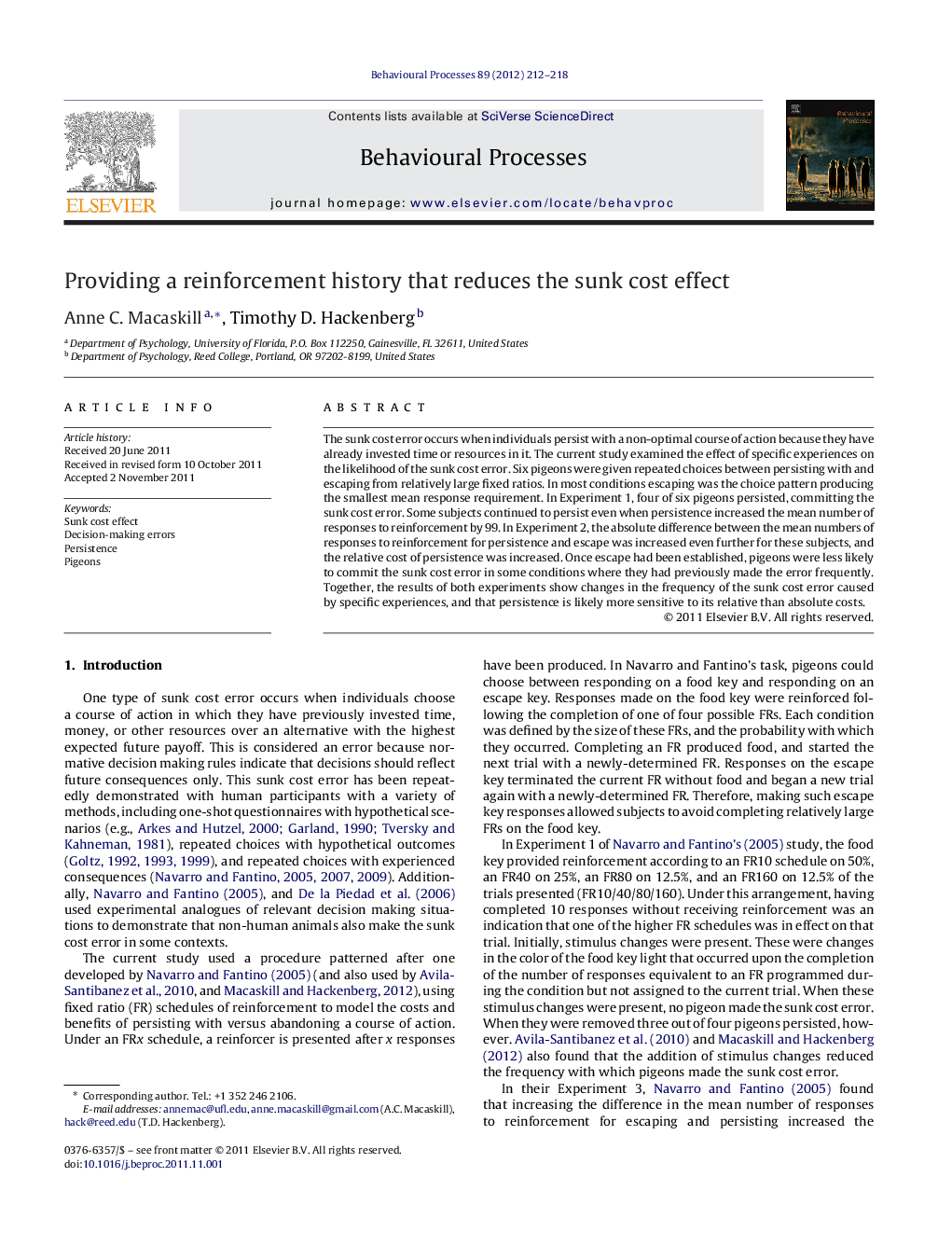| Article ID | Journal | Published Year | Pages | File Type |
|---|---|---|---|---|
| 2427183 | Behavioural Processes | 2012 | 7 Pages |
The sunk cost error occurs when individuals persist with a non-optimal course of action because they have already invested time or resources in it. The current study examined the effect of specific experiences on the likelihood of the sunk cost error. Six pigeons were given repeated choices between persisting with and escaping from relatively large fixed ratios. In most conditions escaping was the choice pattern producing the smallest mean response requirement. In Experiment 1, four of six pigeons persisted, committing the sunk cost error. Some subjects continued to persist even when persistence increased the mean number of responses to reinforcement by 99. In Experiment 2, the absolute difference between the mean numbers of responses to reinforcement for persistence and escape was increased even further for these subjects, and the relative cost of persistence was increased. Once escape had been established, pigeons were less likely to commit the sunk cost error in some conditions where they had previously made the error frequently. Together, the results of both experiments show changes in the frequency of the sunk cost error caused by specific experiences, and that persistence is likely more sensitive to its relative than absolute costs.
► Pigeons initially made the sunk cost error by persisting. ► Experiencing a high cost for persistence permanently reduced the sunk cost error. ► Specific experiences can therefore reduce the sunk cost error.
